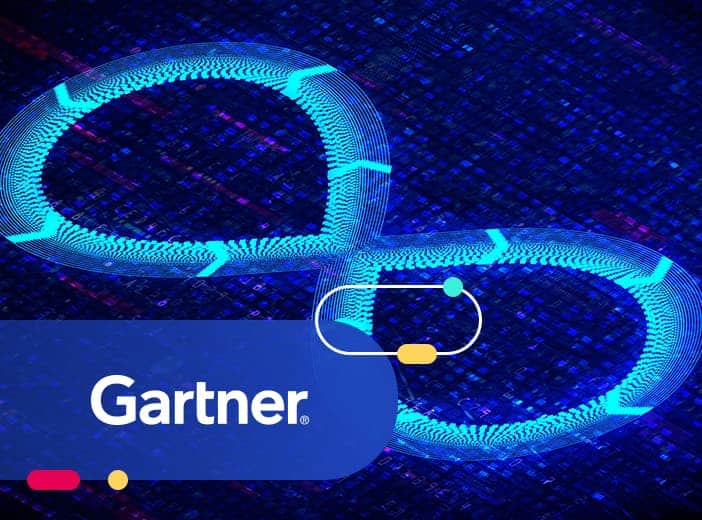Glossary
Data culture
A data culture is where everyone in an organization relies on, and uses, data within their working lives for decision making, planning and operations.
What is a data culture?
In a data (or data-driven) culture information and data are central to how everyone works on a day to day to basis. Within organizations, information flows freely between departments and is used to drive collaboration and data-driven decision making. The overall mindset is open and curious, looking at how data can help solve problems in new ways and how it can be used to achieve common objectives.
A data culture is one where the entire organization:
- Practices data-driven behaviors
- Values the strategic use of data
- Actively encourages data sharing and collaboration
Importantly, a data culture does not rely on technology – without an effective data culture introducing new technology, such as a company-wide self-service data portal, is likely to fail.
Data cultures are not confined to organizations. Given the importance of data to everyone’s lives it is vital that wider societies develop data cultures where information is freely shared, understood, and acted upon.
What are the benefits of creating a data culture?
It is essential if organizations are to become data-driven and put information at the heart of their operations. It delivers benefits that include:
- Faster, more informed decision-making, enabling greater agility and competitiveness
- A focus on achieving key objectives, from improving the customer experience to embracing innovation
- Company (or ecosystem)-wide collaboration, bringing everyone together to solve problems
- A mindset of constant improvement, backed up by a commitment to test and learn, based on data
- Greater transparency, internally and externally as decisions are made based on data, rather than guesswork or intuition
- Higher productivity and greater automation, increasing efficiency
What are the challenges to developing a data culture?
Culture has been described as “how things are done around here” – essentially the unwritten rules for how people behave and operate.
Therefore, creating a data culture is not straightforward. It needs to be driven and influenced both from the top (senior management) and the bottom (adopted by employees at all levels).
Changing culture can be challenging. For example, 91.9% of executives surveyed by NewVantage Partners said cultural obstacles were their greatest barrier to becoming data-driven.
There are five main challenges to building a data culture:
- Silos: Departments within organizations neither share their data or see the need to collaborate with others. Hierarchical organizations, built on seniority may find it difficult to taking decisions based on data, rather than simply following what senior leaders say.
- Poor data quality: If data is inaccurate or out-of-date, it will not be trusted or used by employees. It has to be right first time they try it, if the data culture is to be adopted.
- Skills: Employees need to be educated on the importance of data, and have the data literacy skills to successfully use it. According to Accenture, only 25% of employees believe they’re fully prepared to use data effectively.
- Governance: Data needs to be available, complete and secure. Access to personal information has to meet regulations (such as GDPR), protecting privacy and following ethical guidelines.
The difficulty of culture change: People are suspicious of changes to how they work, meaning they may automatically reject a new data-driven culture.
How can you overcome the challenges to creating a data culture?
Introducing a data culture is similar to any other change management project. It requires close involvement of employees, based on demonstrating the benefits and overcoming any objections in order to successfully change behaviors.
Following these best practices will help develop a data culture:
- Build data literacy and understanding: Explain the importance of data to everyone, providing support and a common vocabulary to help the adoption of data skills.
- Lead from the top: Link the importance of a data culture to achieving overall corporate objectives, with a sustained commitment from senior management.
- Demonstrate value: Ensure every employee understands how data helps them do their job better and faster. Listen to employees and create use cases that make data real and deliver value, and thus increase their buy-in.
- Provide access: Move beyond data specialists by giving everyone access to data through self-service, in ways that are intuitive and easy-to-use. This will help democratize data use, and empower employees to adopt data in their working lives.
- Support through the change: Give tailored training to employees at different levels and in different departments. This will build confidence and help them understand the importance of data. To back this up, recruit data champions from across the business to serve as a bridge between technical teams and other employees, helping to drive your data culture forward.
Learn more

Blog
Data lineage: the challenges and benefits
Data lineage has become crucial for enterprise data management. With the increasing volumes of data used in decision-making, it's critical to know where it comes from, how it's been transformed, and where it's flowing to. Data lineage brings this transparency, improving data quality, governance, and compliance.

Blog
How adopting a DataOps approach increases data value
The pressure is on Chief Data Officers to deliver greater value to the business, requiring a step change in team productivity and a focus on increasing data consumption. We explore how adopting DataOps methodologies helps achieve these key objectives.

Blog
5 reasons to enrich your data catalog with a data product marketplace
Creating a data catalog is the first step in your data strategy, enabling you to identify, structure, and take stock of your data assets. This process can be long, technical, and because of the growth of data, potentially ambitious in scope. However, once data is cataloged the question remains: how do you ensure that it is actually consumed at scale?
